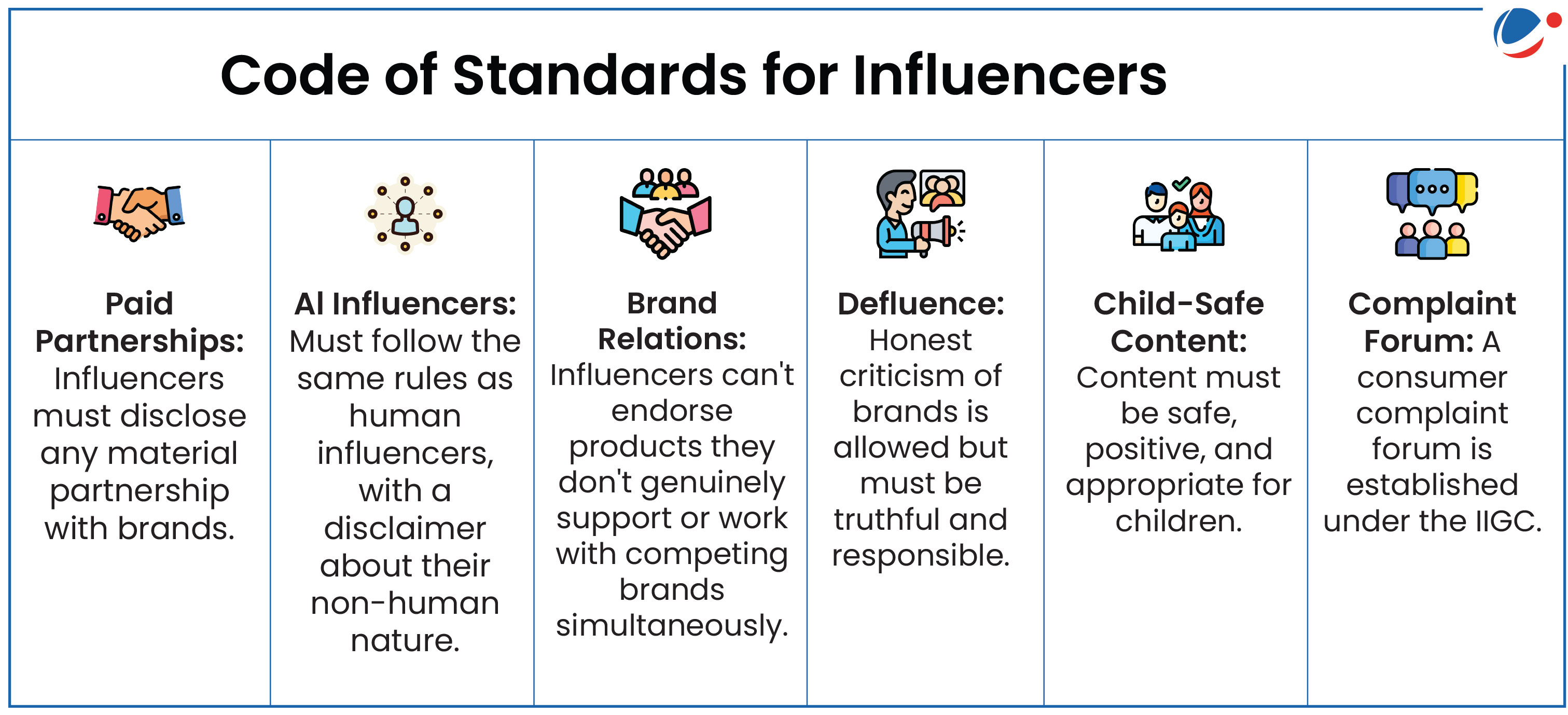Industry leaders have launched the India Influencer Governing Council (IIGC), a self-regulatory body for Influencer marketing with members from major firms like Meta and Google.
- It introduced a Code of Standards and weekly influencer ratings to ensure transparency, accountability, and ethical content creation in India’s digital ecosystem.
- Influencer marketing is projected to reach Rs 3,375 crore by 2026.
Need for regulating Influencer Marketing
- Consumer Misinformation and Fraud: Influencers often promote unverified products, like health supplements or crypto schemes.
- Regulation can enforce accountability, ensuring claims are substantiated.
- Exploitation of Vulnerable Audiences: Influencers often target young or impressionable followers.
- Regulations can protect minors by restricting promotions of age-inappropriate products, like alcohol or gambling.
- Unfair Competition and Market Distortion: Unregulated influencer campaigns can undermine traditional advertising, which faces stricter scrutiny.
- Mental Health and Unrealistic Standards: Influencer content can promote harmful beauty or lifestyle ideas. There is a need to curb deceptive editing (e.g., filters) and mandate warnings.
- Platform Accountability Gaps: Social media platforms often evade responsibility for influencer content. Regulation can force platforms to monitor and remove violative content.






